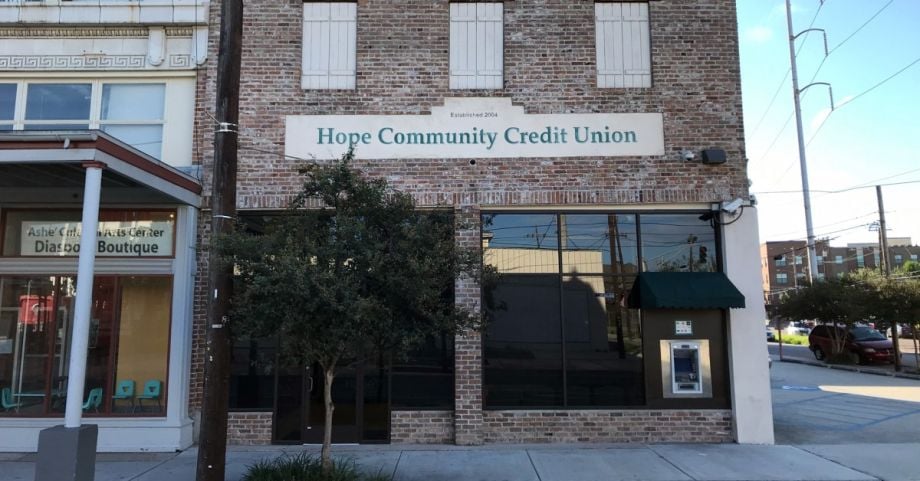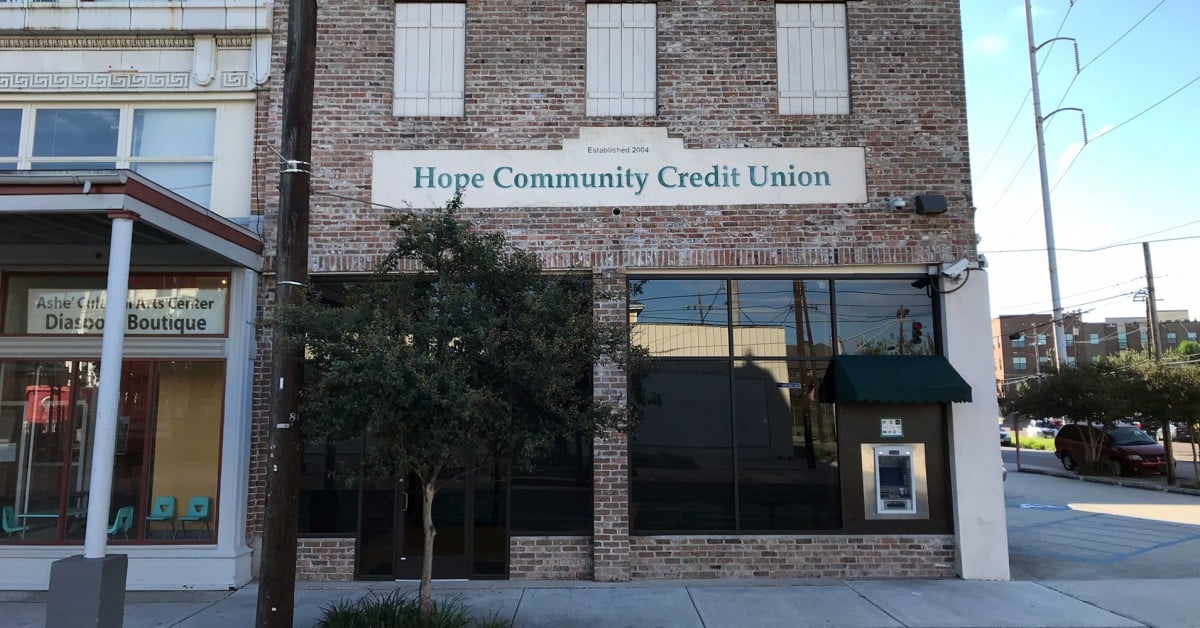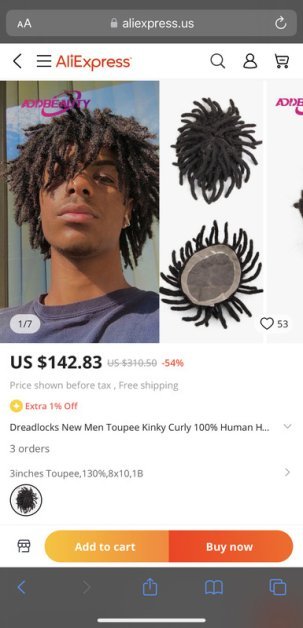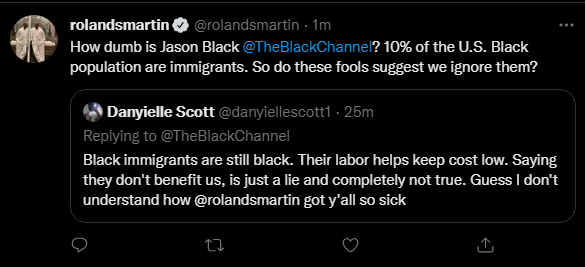You are using an out of date browser. It may not display this or other websites correctly.
You should upgrade or use an alternative browser.
You should upgrade or use an alternative browser.
top hashtags
- #LetEmKnow1 Mention(s)
- #GoCavs1 Mention(s)
- #CavsNation1 Mention(s)
Filter
Show only:
How I'm Feeling Today
- Blrd
- 0 Replies
FRUSTRATED
Sometimes I just feel like why even try?
These vote blue no matter who and civil rights generation minded people are so brainwashed that it's not possible to get through to them. They are literally part of a cult!
They are the overwhelming majority of the black community. If estimate at least 95%. They teach their children and grandchildren the same ideology. It's passed down like the sickness and disease it is.
I know because I used to be like that and I learned it from my parents and aunts and uncles.
They live in a bubble where the Democratic party is worshipped and the Republicans are demonized. If you speak against the Democratic party you are attacked.
They will show up in large numbers and just vote blue no matter who.
The way that some of us think in that we need to hold them accountable and ask for something for our vote is unheard of to them. Those of us that think like this are in the minority by far.
At times I just feel like fuck em all. Let keep voting blue no matter who. I'll just look out for me and mine and whatever I'll will the Democratic party imposes so what! Nothing we can do because they won't listen. Black people as a collective are brainwashed and can't or won't use critical thinking.
Even when the facts are right in front of them, they ignore it in favor of the Democratic party. If they have to choose between their people and the Democratic party they choose the Democratic party every single time.
They will teach their children the same and they won't listen. Sure a few people will make their way out but the majority will remain the same even their children.
Enough black people will never change to make a difference. That's a hard truth but it's the bleek outlook. I'm not being defeatist. I'm just being realistic.
These vote blue no matter who and civil rights generation minded people are so brainwashed that it's not possible to get through to them. They are literally part of a cult!
They are the overwhelming majority of the black community. If estimate at least 95%. They teach their children and grandchildren the same ideology. It's passed down like the sickness and disease it is.
I know because I used to be like that and I learned it from my parents and aunts and uncles.
They live in a bubble where the Democratic party is worshipped and the Republicans are demonized. If you speak against the Democratic party you are attacked.
They will show up in large numbers and just vote blue no matter who.
The way that some of us think in that we need to hold them accountable and ask for something for our vote is unheard of to them. Those of us that think like this are in the minority by far.
At times I just feel like fuck em all. Let keep voting blue no matter who. I'll just look out for me and mine and whatever I'll will the Democratic party imposes so what! Nothing we can do because they won't listen. Black people as a collective are brainwashed and can't or won't use critical thinking.
Even when the facts are right in front of them, they ignore it in favor of the Democratic party. If they have to choose between their people and the Democratic party they choose the Democratic party every single time.
They will teach their children the same and they won't listen. Sure a few people will make their way out but the majority will remain the same even their children.
Enough black people will never change to make a difference. That's a hard truth but it's the bleek outlook. I'm not being defeatist. I'm just being realistic.
No wonder Joe Biden and Strom Thurmond are such good friends.
- By ART
- The Cookout
- 8 Replies
Look at and read Number #7


When Looking For Validation From Others, You Will FAIL.
- The Cookout
- 1 Replies
You Can't WAIT For Others To Validate You. The Question Becomes " Do You, Believe In You?
White Hispanic Janitor Urinates In Black Woman's Water Bottle And Gives Her An Incurable STD.
- The Cookout
- 20 Replies
Login to view embedded media A Texas custodian is facing charges after a Black co-worker accused him of urinating in her water bottle and giving her an incurable sexually transmitted disease (STD).
The victim, who wished to remain anonymous, works at a family-owned physician's office in East Houston. She told KHOU 11 that she noticed her water bottles smelling foul and having a strange taste every time she took a drink.
The Black woman explained that she would leave her water bottle at work if she didn't finish it. At first, she suspected there was something wrong with the office's water dispenser and purchased a disposable bottle of water. She usually leaves her water bottles at her job overnight.
One day in September, a co-worker asked to make the victim some coffee, and the victim requested they use the water on her desk. The co-worker then asked her why the water was yellow.
“I felt disgusted," she said. “I raised it to my face, smelled it, and it smelled like urine.”
A doctor in the office performed a urinalysis on the water, confirming the horrifying suspicions and suspecting the custodian, who's identified as Lucio Catarino Diaz in court documents.
The victim set up a hidden camera in her office, and it allegedly caught Diaz rubbing his genitals on her water bottle, according to court records. The employee called Houston police the next day and provided two water bottles as evidence. Lab results confirmed the victim tested positive for the STD, which she didn't have before the incident, documents say.
Diaz reportedly confessed to the crimes when confronted by officers, calling it a "sickness." The custodian also told cops he did something similar at his previous job and doesn't remember how many times he's committed these disgusting acts. Diaz alleges he didn't know he had an STD, and he tested positive for the same one as the victim, according to records.
He was arrested and charged with aggravated assault, but that's not the end of the story. Eleven other potential victims claim Diaz did the same thing to them, authorities say. They're currently being tested for STDs as well.
As for the victim who initially exposed him, she plans on filing a lawsuit against building management and others who allegedly ignored her complaints.
“It’s really just disgusting and my client will suffer the consequences of this man’s action for the rest of her life,” Kim Spurlock, the victim's attorney, told reporters.
The victim, who wished to remain anonymous, works at a family-owned physician's office in East Houston. She told KHOU 11 that she noticed her water bottles smelling foul and having a strange taste every time she took a drink.
The Black woman explained that she would leave her water bottle at work if she didn't finish it. At first, she suspected there was something wrong with the office's water dispenser and purchased a disposable bottle of water. She usually leaves her water bottles at her job overnight.
One day in September, a co-worker asked to make the victim some coffee, and the victim requested they use the water on her desk. The co-worker then asked her why the water was yellow.
“I felt disgusted," she said. “I raised it to my face, smelled it, and it smelled like urine.”
A doctor in the office performed a urinalysis on the water, confirming the horrifying suspicions and suspecting the custodian, who's identified as Lucio Catarino Diaz in court documents.
The victim set up a hidden camera in her office, and it allegedly caught Diaz rubbing his genitals on her water bottle, according to court records. The employee called Houston police the next day and provided two water bottles as evidence. Lab results confirmed the victim tested positive for the STD, which she didn't have before the incident, documents say.
Diaz reportedly confessed to the crimes when confronted by officers, calling it a "sickness." The custodian also told cops he did something similar at his previous job and doesn't remember how many times he's committed these disgusting acts. Diaz alleges he didn't know he had an STD, and he tested positive for the same one as the victim, according to records.
He was arrested and charged with aggravated assault, but that's not the end of the story. Eleven other potential victims claim Diaz did the same thing to them, authorities say. They're currently being tested for STDs as well.
As for the victim who initially exposed him, she plans on filing a lawsuit against building management and others who allegedly ignored her complaints.
“It’s really just disgusting and my client will suffer the consequences of this man’s action for the rest of her life,” Kim Spurlock, the victim's attorney, told reporters.
Mississippi-based, Black-Owned Hope Credit Union Is Growing Its Capital By Bringing In Large Corporate Members.
- News
- 3 Replies

Hope Credit Union's first branch in New Orleans (Photo courtesy Oscar Perry Abello)
This is your first of three free stories this month. Become a free or sustaining member to read unlimited articles, webinars and ebooks.
BECOME A MEMBER
Operating a credit union in the Deep South, a region with some of the deepest entrenched poverty in the country, comes with added challenges. Hope Credit Union, headquartered in Mississippi, boasts 34,000 members, but on any given day, two-thirds of those members have fewer than $1,000 in their bank account and nearly the same amount earn less than $50,000 annually. The region’s high rates of unbanked or under-banked residents allow payday and subprime lenders to flourish.
According to Bill Bynum, CEO of Hope Credit Union, that has meant they need to get creative with building liquidity.
“When you’re in wealth-starved, dirt-poor places, you have to import capital,” Bynum, says. “People do not have the savings, the deposit, that traditional banks rely on to buy low-cost liquidity to make loans.”
Hope Credit union has done that by bringing in a series of high-profile corporate members — including Netflix, PayPal and Nike — as part of a program they’re calling the Transformational Deposit Initiative.
They launched the initiative in June 2021 and quickly received their first $10 million deposit from Netflix. For Netflix, that investment was part of a pledge the company made to put 2% of their cash holdings, totaling about $100 million, in Black financial institutions. According to Aaron Mitchell, director of human resources at Netflix Animation Studios, they’re hoping to encourage other large companies to do the same.
“Many companies make statements and donations, but we wanted to change how we conducted business every day to tackle issues like the racial wealth gap,” Mitchell says. “Black banks have been fighting to better their communities for decades, but they’re disadvantaged by their lack of access to capital. The major banks, where big multinational companies including ours keep most of their money, are also focusing more on improving equity, but not at the grassroots level these Black-led institutions like Hope can do.”
The company created a three-part mini-series on YouTube called Banking on Us. The series identifies some of the topics Black Americans face in acquiring wealth. The series explores the difficulties Black Americans have in acquiring wealth and some of the systematic racism of financial institutions, such as the hardships of Blacks in acquiring a mortgage or business loan, which are continuous barriers to economic mobility.
Bynum says Netflix put Hope Credit Union through a rigorous process of examining the Credit Union’s management and financial condition to make sure they would be good stewards of their resources.
The deposit ensured liquidity but it also “brought attention to this strategy,” Bynum says. “We couldn’t buy the recognition that brought. Netflix was very intentional about getting the word out about this, encouraging other companies to follow their lead and they did.”
In the latter half of 2021, Hope Credit Union received $116 million in Transformation Deposits from 443 individuals, businesses and nonprofits. The Credit Union estimates each $10 million deposit helps finance more than 2,500 entrepreneurs, homebuyers and consumers, largely from marginalized communities: Of Hope Credit Union’s members, 77% are black and 60% are women.
“We are able to use those deposits to stand in the place of those checking accounts and savings accounts that you so readily find in prosperous communities, but are not to be found in places that we serve,” Bynum says.
At .10%, the enticement for the deposit provides more of a social return than a financial one. The institutions understand the “importance of their future workforce and future customers,” Bynum says. And since the money is a deposit and not a donation, the banks can withdraw it anytime they want.
“We’ve seen a lot of individuals, a lot of families who have proven that they can do anything that anyone else can do when they have the tools,” Bynum says. “So our work is to try to bring those tools to bear for people who lack access to those tools. … We really feel fortunate to be able to lend a financial hand, lifeline and facilitate their movement up the economic ladder.”
However, that ladder can sometimes be a little slippery. The past two years have been hard on many Americans, but it’s been especially hard on Black Americans. In a 2021 study, the Hamilton Project at the Brookings Institution found that while all Americans, regardless of socioeconomic background, have been affected by COVID-19, Black Americans from economically disadvantaged communities have been hit particularly hard. The reports’ authors write that while all Americans have been affected by COVID-19, “Many Black Americans and their communities lack sufficient income and wealth to buffer both the job loss crisis and the economic crisis that have resulted from the COVID-19 pandemic.”
This is a fact Bynum knows well, but he sees the reaction of corporations as a ray of hope. The attention raised by the large corporate donations they received, as well as Netflix’s series, has continued to build momentum. Last December, Hope Credit Union was awarded $88 million through the Emergency Capital Investment Program (ECIP) by the U.S. Department of the Treasury, the largest community development investment the organization has received yet.
“There seems to be more attention over the past two years in the wake of George Floyd’s murder,” Bynum says. “And a bit of an awakening and recognizing that the gaps exist and are not sustainable. So I will look at that as a window of opportunity, but we’ve got to maximize the opportunity.”

Why Netflix Is Depositing Its Money in Black Banks
Mississippi-based Hope Credit Union is growing its capital by bringing in large corporate members.
nextcity.org
Rashad Singleton Speaking on Rep Lee and Senator Booker
In another thread I was asked where I heard him invite them and got enough free time to sit down and sift through the podcasts. I am only posting because some doubt was cast on me on if I heard it from him. Not a big deal after the fact but I felt I needed to to remove any doubts (I won't go as far as accusations...haha)
Go to 1:02:29
Login to view embedded media
Go to 1:02:29
Login to view embedded media
PS4 Internet Speed is Low
Hi, I've done an connection speed test using my Netduma R2 and I am paying for 500 mbps, however, when I run a connection speed test on my PS4 it only gives me a connection speed at around 79 mbps. I've followed the instructions as close to what is instructed as possible. What could be the issue and how can I resolve it?
US GREENCARD, NO PASSPORT DOCUMENT REQUIRED=DEMORATS PARTY
This year passport document isnt required for green card lottery applicants meaning more immigrants and more demorats party voters no coincidence
SPIN: Are You Celebrating Tariq's Holiday?
- The Cookout
- 14 Replies
Spun from this thread: Do you celebrate Kwanza?
Our good brother Tariq has created a new winter holiday that's only for FBA/ADOS/Freedmen (sorry, tethers) called Arutisuse.
Will you celebrate Arutisuse this year?
Have you preordered your Karen keychains and Hidden Colors DVD box sets to give as gifts?
Will you offer Foundational Black fruitcake to the FBI agents who visit your house?
Happy holiday season, family!

Our good brother Tariq has created a new winter holiday that's only for FBA/ADOS/Freedmen (sorry, tethers) called Arutisuse.
Will you celebrate Arutisuse this year?
Have you preordered your Karen keychains and Hidden Colors DVD box sets to give as gifts?
Will you offer Foundational Black fruitcake to the FBI agents who visit your house?
Happy holiday season, family!

What's The Correct Order?
- The Cookout
- 1 Replies
Login to view embedded media
Let's see who knows how to drive!
Let's see who knows how to drive!
Tariq Nsheed is live on Twitter
- The Cookout
- 1 Replies
Do YOU agree with Kanye West being sued by George Floyd's Family?
Login to view embedded media
Login to view embedded media
The Educated Truth
- By cjg
- The Cookout
- 0 Replies
Had to share. My 5yo daughter told the class 'Columbus didn't discover America' .. (she brings/reads Haile Selassie to school sometimes, btw)
I think she's on her way :)
#proudparent
I think she's on her way :)
#proudparent
Do you celebrate Kwanzaa?
- By cjg
- The Cookout
- 59 Replies
Almost time :) We all need to get recentered on the goal, strategize, and come back to the one ...
Seriously, Kwanza may be our one of many tools to help unify us ...
Login to view embedded media
Seriously, Kwanza may be our one of many tools to help unify us ...
Login to view embedded media
What thinks can we do and build now to help bring the culture together?
- By cjg
- The Cookout
- 0 Replies
It may be just me, but I feel like we need more unity. How do we accomplish this? I recently heard an interview (Carl Nelson, I'll try to post of I can find out) .... A griot was saying how we are where we are because we lack real culture (not sure I believe that, I know we have our food, traditions, etc ... Is language part of that? If so, we need to be learning some Swahili or something) ...
Anyway, question is, what are some things we can do to bring the culture together?
Can technology be used to bring the culture together?
Anyway, question is, what are some things we can do to bring the culture together?
Can technology be used to bring the culture together?
Do you know about the Censored Eleven?
- By Kanu
- The Cookout
- 3 Replies
The Censored Eleven is a group of Looney Tunes and Merrie Melodies cartoons originally produced and released by Warner Bros that were withheld from syndication in the United States by United Artists (UA) beginning in 1968.
UA owned the distribution rights to the Associated Artists Productions library at that time, and decided to pull these 11 cartoons from broadcast because the use of ethnic stereotypes in the cartoons, specifically African stereotypes, was deemed too offensive for contemporary audiences.
UA owned the distribution rights to the Associated Artists Productions library at that time, and decided to pull these 11 cartoons from broadcast because the use of ethnic stereotypes in the cartoons, specifically African stereotypes, was deemed too offensive for contemporary audiences.
| 1. | Hittin' the Trail for Hallelujah Land | 1931 | Rudolf Ising | Merrie Melodies | Yes |
| 2. | Sunday Go to Meetin' Time | 1936, 1944 (reissue) | Friz Freleng | No | |
| 3. | Clean Pastures | 1937 | No | ||
| 4. | Uncle Tom's Bungalow | Tex Avery | No | ||
| 5. | Jungle Jitters | 1938 | Friz Freleng | Yes | |
| 6. | The Isle of Pingo Pongo | 1938, 1944 (reissue) | Tex Avery | No | |
| 7. | All This and Rabbit Stew | 1941 | Yes | ||
| 8. | Coal Black and de Sebben Dwarfs | 1943 | Bob Clampett | No | |
| 9. | Tin Pan Alley Cats | No | |||
| 10. | Angel Puss | 1944 | Chuck Jones | Looney Tunes | No |
| 11. | Goldilocks and the Jivin' Bears | 1944, 1951 (reissue) | Friz Freleng | Merrie Melodies | No |
🤔 VOTE #MAGA To Stop Illegal Immigration !?⁉️!? - DEBATE
- By ART
- The Cookout
- 9 Replies
10-14-22 🤔 VOTE #MAGA To Stop Illegal Immigration⁉️ - DEBATE @Gregg Marcel Dixon for South Carolina
Login to view embedded mediaThe problem with white people
- The Cookout
- 3 Replies
Saw this was on my timeline.
Login to view embedded media
Login to view embedded media
Philadelphia "Apologizes" For Using Black Inmates As Human Guinea Pigs For Medical Experiments
- By ART
- The Cookout
- 2 Replies
Philadelphia "Apologizes" For Using Black Inmates As Human Guinea Pigs For Medical Experiments
Login to view embedded media
Login to view embedded media
Load more
Trending
- Draymond Green Suspended for Choking Rudy GobertThe Warriors Get Choked Up Off Draymond's On-Court Antics Draymond...
- rm dest
- Updated:
- 3 min read
- Amare Stoudemire's Israel Rant Is a Textbook Case of Stockholm SyndromeAmar'e Stoudemire is making headlines for his recent rant in which he...
- Staff
- Updated:
- 3 min read
- Sexyy Red's Sex Tape Leak Is The Chickens Coming Home to RoostSexyy Red's sex tape recently "leaked" on her IG and it has been taking...
- Jay
- Updated:
- 3 min read



